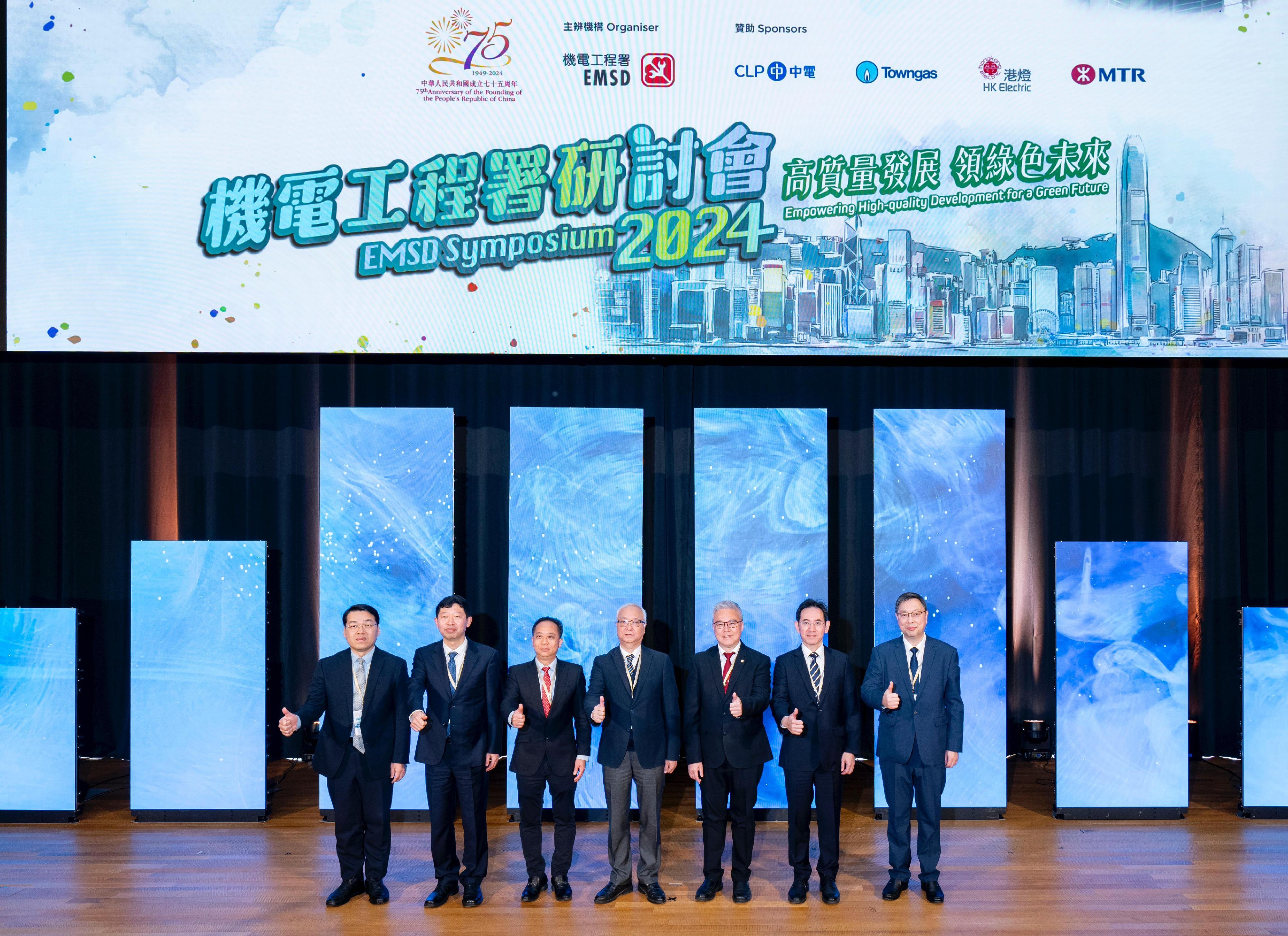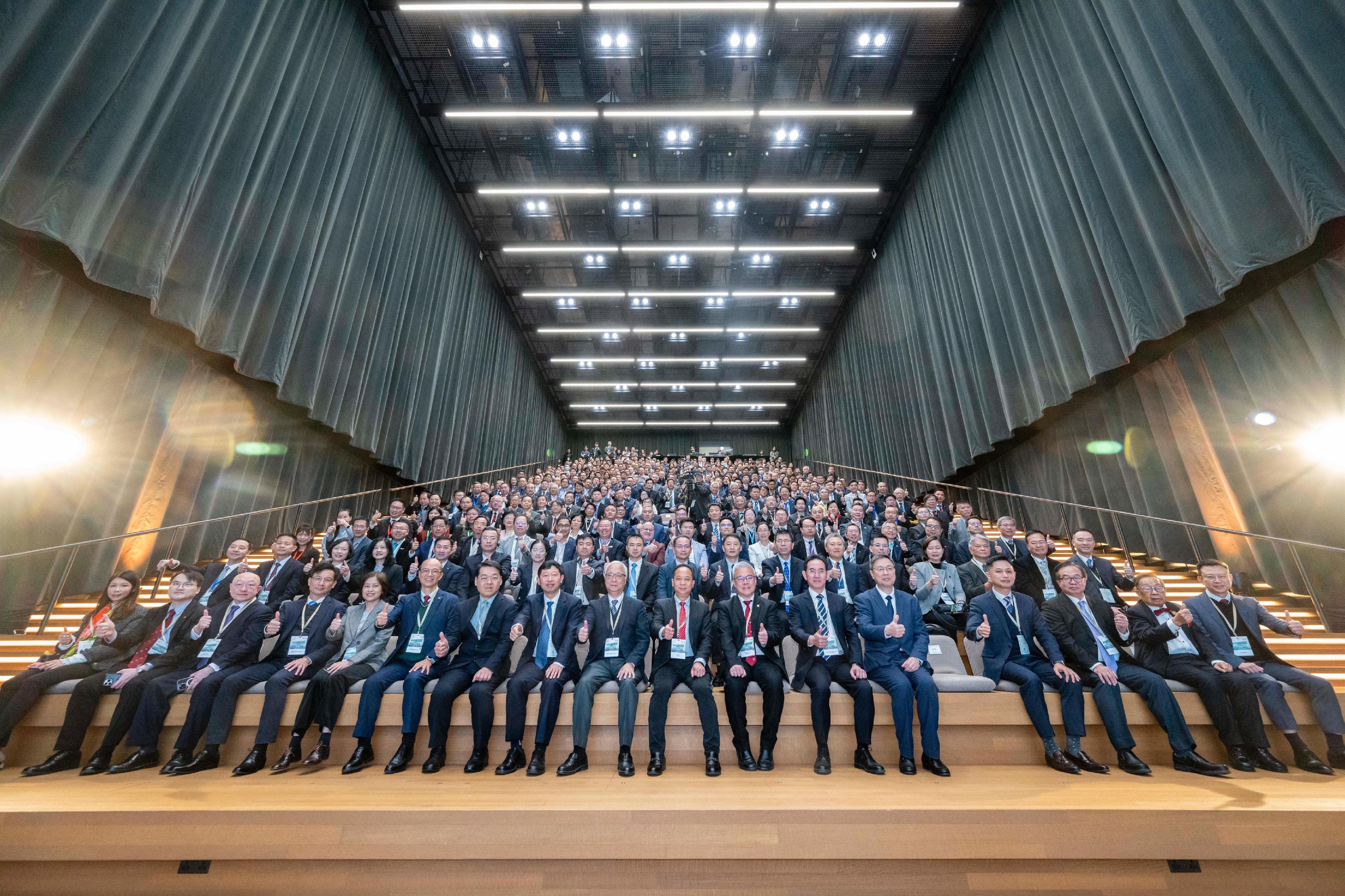EMSD Symposium 2024 held (with photos)
The EMSD Symposium 2024, organised by the Electrical and Mechanical Services Department (EMSD), was held today (December 16). It is one of the events celebrating the 75th anniversary of the founding of the People’s Republic of China. Officials from the National Energy Administration and the National Railway Administration and academics from Tsinghua University delivered keynote speeches under the theme “Empowering High-quality Development for a Green Future”. Over 400 representatives of local, Mainland and overseas government departments, public organisations, electrical and mechanical (E&M) and innovation and technology (I&T) sectors, professional institutions and academics attended the symposium and shared innovative solutions and research and development (R&D) achievements related to new energy, smart E&M, green transport and efficient construction.
Delivering an opening address at the symposium, the Secretary for Environment and Ecology, Mr Tse Chin-wan, encouraged all participants, trade members and other stakeholders to promote the development of renewable energy and new energy, including green hydrogen and low-carbon hydrogen energy, seize opportunities in hydrogen development to establish Hong Kong as the country’s hub for promoting hydrogen industry and technology, address the green transition, and achieve carbon neutrality before 2050.
In his welcoming speech, the Director of Electrical and Mechanical Services, Mr Raymond Poon, expressed hope that the symposium would inspire innovative thinking and reinforce Hong Kong’s role as a “super-connector” and a “super value-adder” between the Mainland and the rest of the world, contributing to the high-quality green city development of the country. He called on participants to work together to optimise city management and promote in-depth integration and development of the Guangdong-Hong Kong-Macao Greater Bay Area. As the Government’s innovation facilitator, the EMSD will continue to support R&D and promote the adoption of I&T and artificial intelligence to foster new quality productive forces.
At the symposium, the EMSD signed a Memorandum of Co-operation with the Guangzhou Association for Science & Technology aimed at strengthening exchanges and co-operation between the two places and promoting technological innovation. Prize presentation for winners of the GWIN 2024 Smart City E&M IoT Application Challenge and the Hydrogen Fueled Street Washing Vehicle Naming & Drawing Contest was also held during the symposium.
To enhance the diversity of communication channels with the public and promote co-operation between Hong Kong and the Mainland, the EMSD has set up its WeChat official account and held a launching ceremony for it at the symposium.



